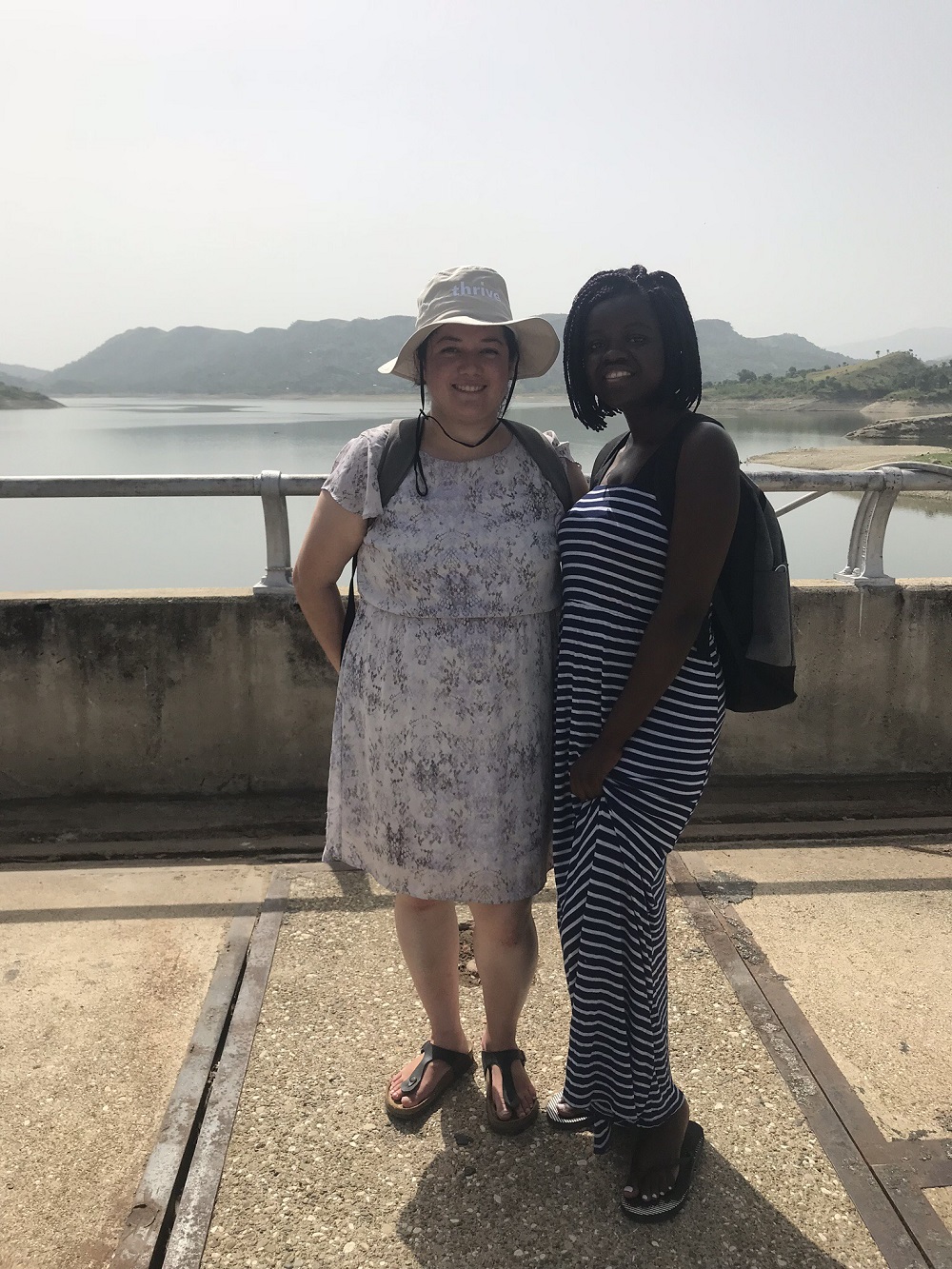Anna Marie Tran and Tiguiran Kane
Equal Health Social Medicine Course, Haiti

Two TouroCOM students spent part of their summer learning about social medicine and the realities of practicing medicine in Haiti.
TouroCOM Harlem student Tiguiran Kane and TouroCOM Middletown student Anna Marie Tran participated in the Social Medicine Course run by Equal Health, a non-profit dedicated to supporting medical practitioners in Haiti.
The three-week intensive occurred in July and took ten international medical students to Haiti to meet with medical and healthcare professionals in the country to try to get a better understanding of how medicine is practiced in the country, while learning how factors such as race, power and class affect global medical treatment. The course was conducted in French, a common second language in Haiti. (The first week of the course was taught by webinar since a protest in Haiti made travelling to the island difficult.)
During the class portions of the course, each international medical student was paired with a Haitian medical counterpart, called their binome. The Haitian students included doctors, nurses, pharmacists and social workers. Specific lectures were devoted to topics on financing global health efforts, the impact of social injustice and the consequence of neoliberalism on global healthcare. After lectures the students visited medical centers and conducted home visits with the local practitioners.
“During our hospital visits our goal was to understand how the hospitals are run and how they’re funded as well as the motivations behind the NGOs,” said Kane. One hospital the group visited was run by Partners with Health which treats patients for free. “What was special about Partners in Health is that they work with the government to improve the health centers as opposed to establishing their own agenda.”
Both Kane and Tran stressed that international students weren’t asked to treat any patients.
“One of the points that our program stressed was that there are qualified health practitioners in Haiti,” said Tran. “But there aren’t paying jobs for them. I didn’t even use a stethoscope. We were there to learn and have conversations with medical professionals in Haiti.”
The course took place in Mireabalais, a town two hours north of Port Au Prince.
“It was a very impoverished area,” said Tran. “There weren’t any large markets and the electricity went out almost every night.”
An additional goal of the program was to build international solidarity among medical practitioners. Kane, who was born in the Ivory Coast and moved to New York in 2006, said she also learned about how Haiti arrived at its challenging circumstances.
“You can’t understand Haiti without looking at the larger question of the history of the country,” said Kane, who described Haiti’s struggle for independence. When Haiti declared its independence in 1804, France, with the complicity of its allies, demanded to be repaid for the “theft” of the country’s population, who were originally slaves. The external debt is considered one of the causes of the country’s poverty.
“The course stressed building partnerships and encouraging all of us to reflect on our own personal experiences with privilege, race, gender and sexual orientation,” said Kane. “We formed really close relationships with the faculty of the program and our fellow students.”
“One of the lecturers said that we shouldn’t say Haiti is poor,” recalled Tran. “Instead we should describe them as impoverished since the reason they are poor is because of the actions and forces of other countries.”
The group also visited the old office of Dr. Paul Farmer, the co-founder of Partners in Health and one of the most critically acclaimed physicians in the world.
The course also focused on how external determinants can affect health treatment.
“Sometimes we focus too much on the biological aspects of medicine, but don’t look at other factors, like the environment and the culture,” said Kane. “They can impact a person’s health as well. We can’t just focus on the physical we have to go beyond that.”
The two returned in time for their second-year at TouroCOM.
“Haiti is a beautiful place and it has a lot of very brilliant and well-trained professionals, but they can’t find jobs,” concluded Tran. “A lot of it has to do with economics and the legacies of power. It was hard to come home, thinking about all our new, brilliant friends who won’t be able to find jobs when they graduate.”

